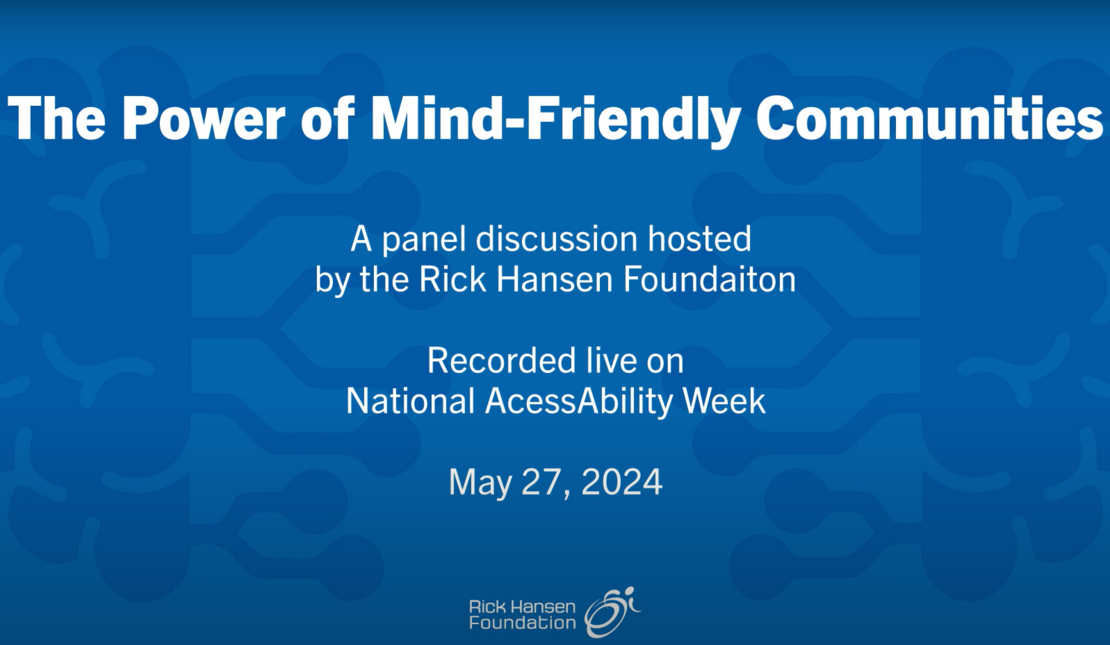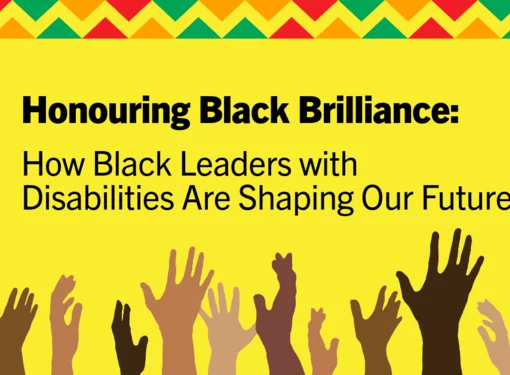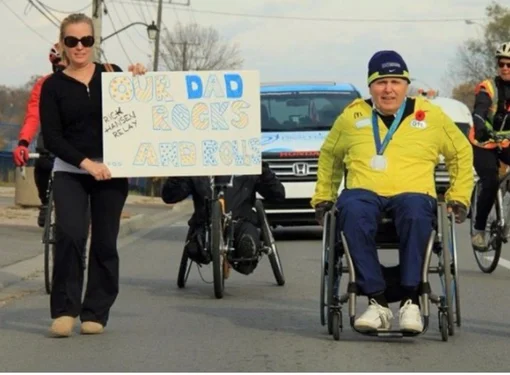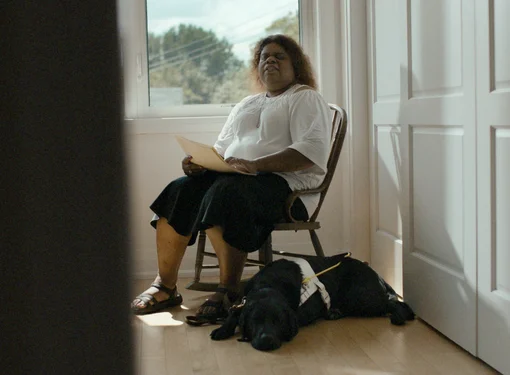The Power of Mind-Friendly Communities – A Recap
The Rick Hansen Foundation (RHF) kicked off National AccessAbility Week with a webinar titled "The Power of Mind-Friendly Communities" on Monday, May 27. The theme of how to make our communities more inclusive of neurodivergent people anchored this hour-long discussion.
The topic was selected because of society's growing interest in neurodiversity. While accessibility was once—and not too long ago—just thought of as being about wheelchair ramps, it has expanded to include people with vision and hearing disabilities and neurodivergence.
Neurodiversity, a term from the autism community in the early 1990s, now covers various mental differences, like ADHD and dyslexia. It highlights that brain differences within the natural range shouldn't be considered deficiencies. Often, if a neurodivergent person struggles in a space, it's due to a mismatch between their abilities and the environment, not a flaw in their thinking. This, of course, is the essence of meaningful accessibility; it enables rather than disables people.
Our panelists in "The Power of Mind-Friendly Communities" were incredible. Moderated by Jonathan Marriott, Director, Partnerships for AccessNow, they included:
- Melanie Green, Consultant and Accessibility Specialist, Government of New Brunswick
- Bushra Hashim, Adaptive Design Specialist, METAFOR
- Eithan Pillipow, Architectural Technologist, Kindrachuk Agrey Architecture
- Lara Pinchbeck, Laura Pinchbeck: Research & Design
The value of this webinar is that it provided attendees – all 481 who attended the live session! – an excellent opportunity to learn from those with lived experience. (If you missed the live session, we invite you to watch the recording.)
Our top three takeaways are:
Shifting Cultural Perceptions
Active listening promotes empathy and knowledge, which can contribute to making the world a better place. At RHF, we often cite statistics, such as the 1 in 4 Canadians who have a disability and the 1 in 3 who are affected by neurological conditions worldwide. However, it is essential to reflect on ourselves. More than 1 in 3 people show an unconscious bias against those with a disability. This figure is higher than the levels of bias of gender or race, according to a document published by Disability & Work in Canada conference in 2019.
"I may not have been able to spell my middle name until I was 14, but my brain is a whirlwind, constantly buzzing with energy and seeking new connections. It's a daily challenge to focus on specific tasks, but it's a source of immense creativity," Jonathan said by way of an icebreaker in the webinar.
He added: "A few years ago, I said this was my superpower, but saying that gave me the real ick. I said it to justify to others that I was okay to be here… But I also know what it's like to be part of inclusive environments that let us be our best selves."
Melanie pointed out that Increased media representation and educational practices are helping to shift cultural perceptions of neurodiversity. Yet there is still a significant gap in understanding and support for neurodivergent conditions beyond the commonly known ones. This lack of awareness impacts support across the lifespan, particularly in obtaining necessary workplace accommodations.
"Embracing neurodiversity means giving opportunities to everyone and helping them reach their full potential," Melanie added.
Lara reminisced about her childhood, remembering how teachers often reprimanded her for what they perceived as a lack of effort. Reflecting on this experience, Lara acknowledged the importance of society's growing interest in neurodivergence and emphasized the vulnerability of sharing such personal stories. She suggested the need for people to exercise caution and control when sharing.
"There was no understanding of the fact that people have a variety of different ways of operating," she said. "The lasting effect of that repeated message impacts me, as an individual and also my ability to participate in the community."
The Need for Accessible Design
Workplace and environmental design need to be more mindful of sensory and cognitive needs, promoting quieter spaces and different communication methods, which can help neurodivergent individuals thrive. Historically, Universal Design prioritizes physical accessibility over sensory and cognitive considerations, but we are shifting toward more customizable and inclusive design practices.
"In terms of design, there's been a lack of guidelines," pointed out Bushra. "We are starting to see shifts happening, but I think some big gaps apply in the application and post-occupancy developments. Can we pivot and change? That is something that we need to do with the neurodivergent community because of the subjective nature of what neurodiversity is… We all process environments differently, which is how we receive information and understand and interpret it internally. We approach accessibility through standards and legislation… It's important in terms of a mandatory standard, but there is no standard for processing."
Added Eithan: "When the design community approaches what's popular, it's not being mindful of people whose experience is possibly victimizing them by creating an environment that doesn't create a neurodivergent experience that might not mirror neurotypical people."
Melanie spoke about how the traditional office set-up caters to a different cognitive style, often skewing toward the neurotypical experience. She explained how ambient noise and visual clutter, common in such environments, can trigger emotions and result in distress. In an open office setting, she said she finds all distractions heightened and difficult to mitigate.
"The concept of Universal Design is well-intentioned but often falls short for neurodivergent people because it often prioritizes physical accessibility… But it doesn't consider sensory and cognitive needs," Melanie said, adding, "This tends to mean we thrive in environments like working from home. It reduces costs, absenteeism, turnover, promotes loyalty – there's a strong business case to be made for being more inclusive."
How to Create More Welcoming Environments
Creating welcoming communities for neurodivergent individuals requires more education, awareness, and the inclusion of neurodivergent voices in the consultation process. Simple changes like adjustable lighting and sensory-friendly policies can benefit everyone. The principle of “nothing about us without us” reinforces the importance of involving neurodivergent individuals in decision-making processes to ensure needs are met.
Panelists encouraged those who work in design or architecture to integrate sensory considerations. One effective approach is offering users variety, choice, and control. Implementing simple adjustments, such as incorporating quieter spaces within office settings, can make a significant difference to all users.
"Customize your experience with things like dimmable lighting or adjustable heating. Those are things that just don't benefit people who are neurodivergent, but they can benefit everyone, even business owners," Melanie said. "Nothing about us without us is critical to creating those spaces."
Eithan emphasized the importance of creating an inclusive environment by encouraging people to approach others' experiences with an open mind, free from preconceived notions. He noted that assumptions about neurodivergence can be a significant barrier. "But, through conversations like this, we can shift those perspectives to be more considerate and let people feel more confident."
In conclusion, Lara highlighted the importance of openness and willingness to learn in creating inclusive spaces where everyone feels a sense of belonging. She aptly puts it: "I'll commend people who are open to having conversations where they know they may not have all the answers. Even if they're not getting it right, they are open to evolving in some way."
RHF looks forward to hosting more of these conversations, which help create a world where diversity is embraced, and every person is empowered to thrive. Together, we can forge a future where inclusion is not just a goal but a lived reality for all.







